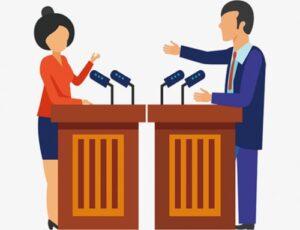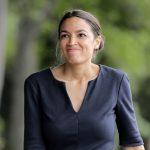 POLITICS – Discussion Questions
POLITICS – Discussion Questions
- How much do you usually follow news and politics? Where do you get our news?
- Have you ever voted?
If so, how did you feel? Proud? Excited? Apathetic? - Which politicians (Korean or foreign, current or past) do you most like and dislike?
- Which candidates or party do you generally support? Why? Do you think there’s much difference?
- How much do you discuss politics with family and friends?
- Are your political views and attitudes similar to your parents and grandparents?
- Who do you think will be the next president of ROK? Who do you want to be?
- In the future, do you think you will become more or less politically informed and active?
- What do you think of university politics – issues and campaign style?
- Would you ever consider becoming a politician? Why or why not?
- Have you ever protested for a cause?
Which cause would you be most likely to protest for? - What, if anything, would you like to change about the political system in your country?
- Which political issues are most important to you? What is your position on….
-
- relations with North Korea? Aid? Negotiation or Confrontation?
- tax rates (should rich people pay higher taxes)?
- environmental protection vs. pro-business regulation?
- gay/lesbian rights to marry and adopt a child?
- abortion? gender equality (equal pay for equal work)
- immigration regulations? How hard should it be for non-Koreans to live and work in Korea?
- educational reform? How would you change the system (if at all)?
[the_ad id=”2049″]
Vocabulary
- politics (n.) – the process of debating, making laws, and running a government
- politician Person who has been elected and works professionally in politics.
- poll A survey of public opinion by questioning a selection of people.
- election (n.) – in a democracy/republic, when everyone votes for their representatives
- candidate – a person who tries to get people’s votes for a government position
- campaign – when candidates try to convince people to vote for them (through ads, speeches, etc.)
- run (v.) – to campaign for political office Trump and Clinton are running for the office of President.
- party (n.) – a group of people with similar political ideas (e.g. Democratic Party, 새누리당, 국민의당)
- debate (n., v.) – when candidates answer questions and argue with each other (usually before an election)
- conservative – a political philosophy based on keeping traditional views and spending less money
- liberal/progressive – a political philosophy based on progress and breaking with tradition
- independent – a person who does not belong to a particular political party
- patriotic (adj.) – feeling or showing love for one’s country
- opposition – the political party that is not in power; people who disagree with a certain view
- ballot Paper or card marked by a person who votes.
- coalition Alliance of two or more political parties, usually to form a government.
- constitution A statement of the fundamental principles and laws by which a country or state is governed.
- dictatorship A form of government in which a single individual total power over a country
- incumbent Person currently holding an official position.
- landslide victory Win an election with a large majority of votes.
- nominee Person chosen by a political party to run for election.
- policy Course of action proposed by a government or political party.
Views: 646






Leave a Reply